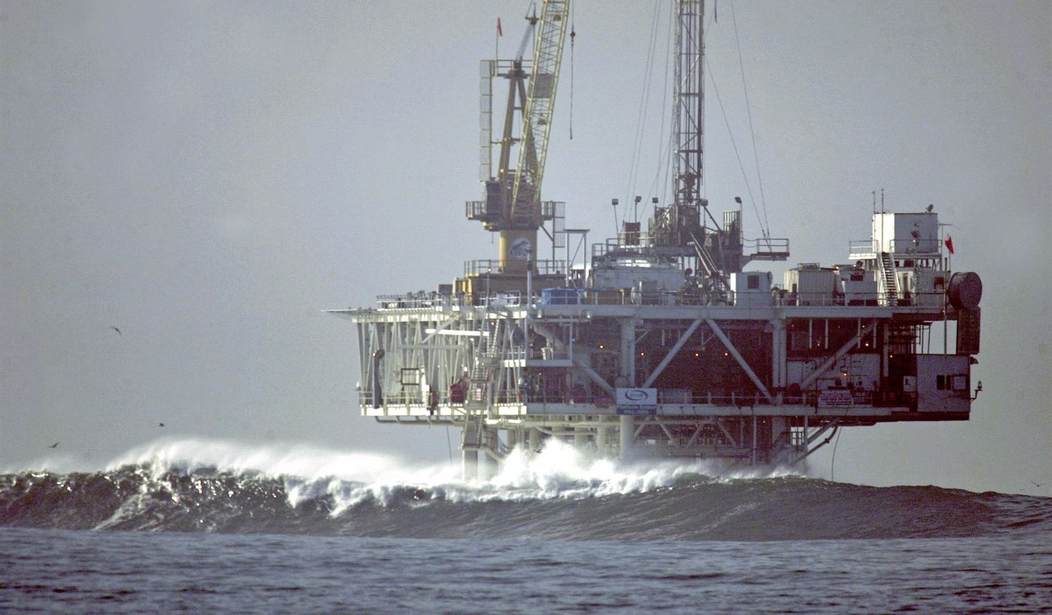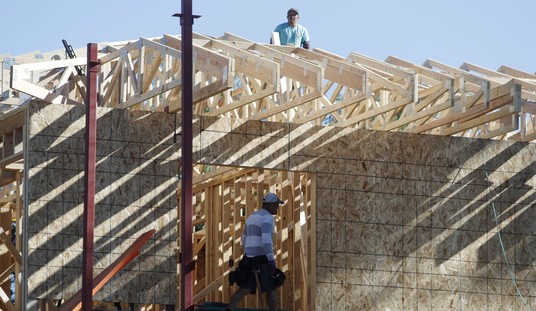There are a lot of things Kamala Harris gets predictably wrong; in fact, the Queen of Word Salads is a safe bet to be wrong on almost any given issue. But there are few things in which Her Wrongness is more wrong than energy policy, especially if we take a look back at her stances before she was Joe Biden's VP pick.
However, during her brief 2019 presidential run before joining the Biden ticket, Harris said during a CNN town hall that she was “in favor of banning fracking” – a position that she said after becoming Biden’s runningmate did not represent Biden’s platform. Biden ran on halting fracking on federal lands, which is a small subset of overall fracking. In office, the Biden administration has slowed leasing for drilling on federal lands, but has not ended it altogether.
This is the least offensive of Kamala Harris's many offensive positions on energy development, although it's one of the least reasoned. Fracking is a technology that, in various forms, dates back to the 1860s. It's not a new technology, and in its modern form, it happens well below any water tables; there are risks, as there are risks with any endeavor, but not to justify the hand-wringing from green energy advocates — or a ban imposed by government fiat.
But Kamala Harris wouldn't be satisfied with just one means of wrecking the economy.
On the campaign trail, Harris also committed to supporting a carbon tax, and called for the end of government subsidies for the fossil fuels industry. Harris’ plan specifically called for the federal government to pass a bill she proposed with Rep. Alexandria Ocasio-Cortez (D-NY), the Climate Equity Act, which would require the government to consider the effects of any environmental legislation or regulation on low-income communities. She also vowed to ensure corporations to “appropriately assess and disclose risks from climate change.”
Not only is this a solution desperately seeking a problem, but all of this, from the carbon tax to the requirement of an assessment of impacts on "low-income communities," would place a huge burden on the American economy and American consumers. And it's staggeringly obvious to anyone with enough sense to pound sand that an increase in energy prices, and all of these policies, would drive up the prices of gasoline, diesel, home heating oil, and natural gas, which could hardly hit lower-income communities more disproportionately. Add to that the fact that increased energy costs also increase the cost of food — farming depends on cheap energy and plenty of it — but also transport of that food, along with the transport of, well, everything. These policies would be disastrous for the people who are least able to afford them.
See Related: Tulsi Gabbard Comes Back to Haunt Kamala Harris Again, Calls Her the 'Maidservant of Hillary Clinton'
Texas Rep. Jasmine Crockett Reveals Democratic Push Against Kamala Harris
Her 2019 platform also outlines climate goals that were more aggressive than the current administration’s – seeking to create a clean energy economy by 2045, requiring new buses, heavy duty vehicles and vehicle fleets to be zero-emission by 2030 and all vehicles to be 100% zero-emission by 2035.
Not that this is only 11 years from now, although admittedly, the 2035 goal was 16 years from the release of her statement. It was just as impossible then as now, however. For one thing, the cost of replacing the nation's entire fleet of buses, trucks, fleet vehicles, and so on in, let's be generous and say 20 years, would be prohibitive, not to mention the cost of upgrading our infrastructure to include such things as charging stations.
And how many charging stations has the federal government built to date after an "investment" of $7.5 billion?
Oh, that's right. Eight.
See Related: Buttigieg Flails Trying to Explain Why Only 8 EV Charging Stations Have Been Built by Biden Admin
Harris also stated that she would utilize the Antiquities Act – a law that allows for the president the authority to create national monuments from federal lands – to protect 30% of the nation’s lands by 2030. She also vowed to phase out fossil fuel development on public lands and implement policies that would allow for the lands to be net carbon sinks by 2030.
Buh-bye, North Slope development, along with any energy development on any federal land, anywhere. And she proposes to just lock up 30 percent of all federal lands by executive fiat? The federal government currently controls roughly 615,312,000 acres of land in the United States. Kamala Harris is proposing to designate 184,593,600 acres as national monuments, effectively ending any energy development on those lands.
In summary, every policy Kamala Harris is on record as favoring would be disastrous to American energy production. It would raise the price of energy and, therefore, the price of everything Americans buy daily, and it would disproportionately affect those who are least able to afford it. But then, Kamala Harris, as an archetypical American coastal urban elite, limousine liberal, has never troubled herself overly much about what hoi polloi think on any given topic.
But there's hope. At least one great American truck company is pushing back.














Join the conversation as a VIP Member